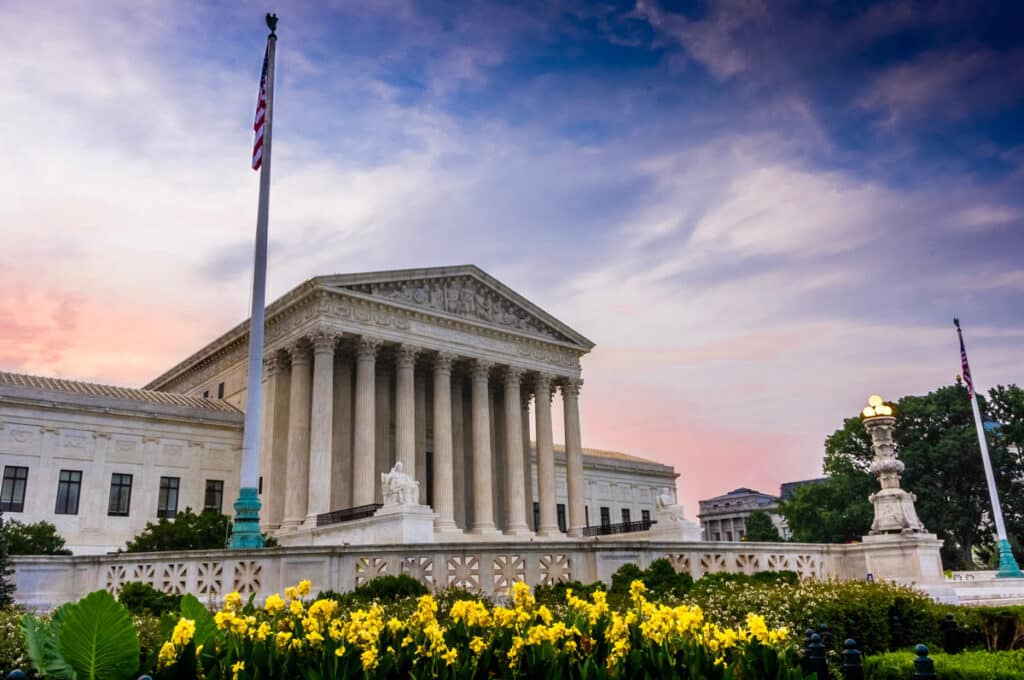
Repatriation tax overview:
- Who: Petitioners Charles and Kathleen Moore have challenged a repatriation tax from the United States government.
- Why: The Moores challenged whether earnings from a foreign investment that were not realized but reinvested should be subject to a repatriation tax.
- Where: The case will be heard by the United States Supreme Court.
The United States Supreme Court will hear a challenge from petitioners Charles and Kathleen Moore about whether a repatriation tax on earnings they received from investment in a foreign company should be taxed if those earnings were reinvested and not realized.
The court granted the Moores’ writ of certiorari Monday. The Moores are challenging a ruling from the 9th Circuit Court of Appeals, where the court said that realization is not a requirement for Congress to apply an income tax to earnings. The couple claims the 16th Amendment to the United States Constitution prevents that type of income tax.
“Congress shall have the power to lay and collect taxes on incomes, from whatever source derived, without apportionment among the several States, and without regard to any census or enumeration,” the 16th Amendment states.
The income came from KisanKraft Machine Tools Private Limited, a low-cost-equipment company the Moores invested $40,000 to help start in India in 2006 to help rural farmers in the country. They owned 13% of the company, while their friend and former co-worker, Ravindra “Ravi” Kumar Agrawal, held 80% of the company.
In 2018, however, they received a tax bill for reinvested income dating back to 2006.
“The Moores never received any distributions, dividends, or other payments from KisanKraft,” the writ said. “And as minority shareholders without any role in KisanKraft’s management, they had no ability to force the company to issue a dividend. For the Moores, it was payment enough that they were able to support KisanKraft’s ‘noble purpose … to improve the lives of small and marginal farmers in India’ and see the good that it was doing.”
The repatriation tax was introduced as part of the Tax Cut and Jobs Act of 2017.
The Moores were ordered to declare $132,512 as taxable 2017 income and pay an additional $14,729 in tax for that year.
Have you ever received a surprise tax bill? Let us know in the comments.
Don’t Miss Out!
Check out our list of Class Action Lawsuits and Class Action Settlements you may qualify to join!
Read About More Class Action Lawsuits & Class Action Settlements:















One thought on Supreme Court to review constitutionality of repatriation tax
Add me please